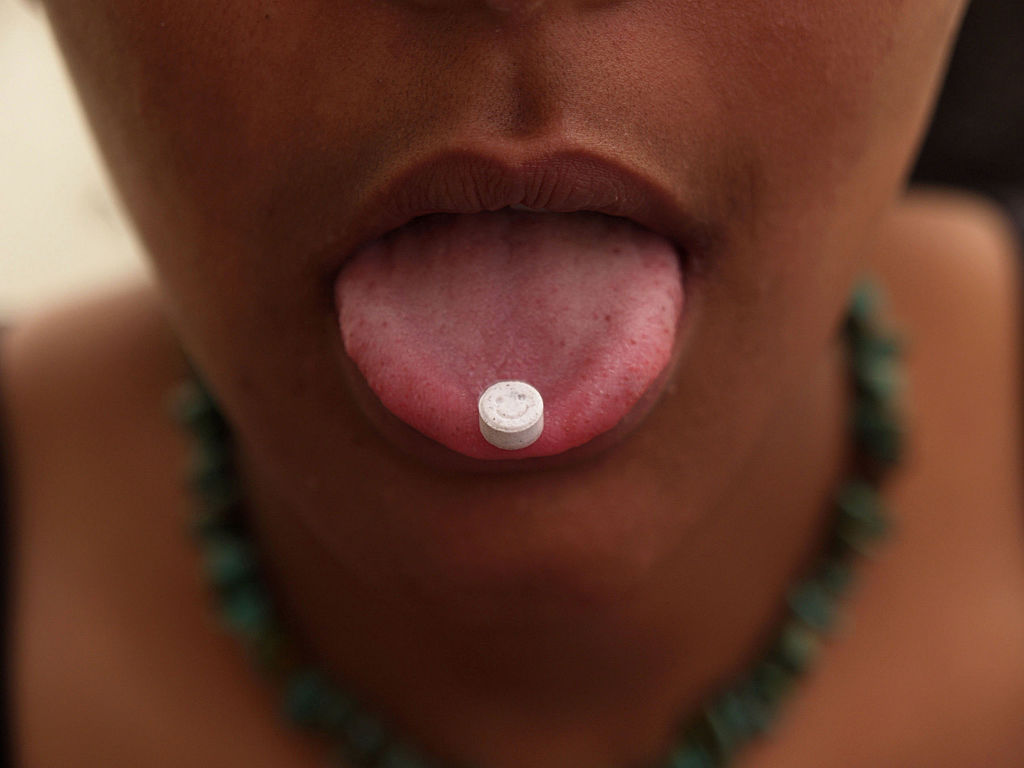“Welcome to the Psychedelic Twenties!” announced Rick Doblin, dressed in an all-white suit. He was speaking last June at the Psychedelic Science conference in Denver, sponsored by the organisation he founded, the Multidisciplinary Association for Psychedelic Studies (MAPS). That was nearly a year ago. Now, he finds himself fighting for his life’s work.
Doblin has long been at the forefront of the “psychedelic renaissance”, pioneering a series of studies seemingly showing the potential of MDMA, or ecstasy, to treat post-traumatic stress disorder (PTSD). though his New Age approach has provoked some scepticism. Earlier this week, however, the advisory board of the United States Food and Drug Administration (FDA) voted 10-1 against approving MDMA as a medicine, dashing the hopes of ravers and therapists alike.
We’ve been here before. Therapists used psychedelics in the Fifties, and it was only the backlash to the trippy-hippy counterculture that got them banned in the following decades. But the FDA’s decision is still significant for the future of MDMA. As shares for companies investing in such medicines plummet, could this be the end of the psychedelic renaissance?
When Doblin founded MAPS in 1986, MDMA-assisted therapy was supposed to be a Trojan horse for mainstreaming other psychedelics. “MDMA is a tool, and it can be used in many different ways,” Doblin told me last year. “The two-part strategy we have is drug development and drug legalisation and regulation: it should be legal for everybody. It’s very important to keep in mind that our fears of the exaggerated risks of these drugs and the counterproductive drug war have come at enormous cost. And when we think about costs, we almost never think about the things that didn’t happen: millions of people could have had phenomenal experiences on the dance floor, and hundreds of thousands of suicides could have potentially been prevented.”
As ecstasy, the drug’s euphoric properties are of interest to therapists helping patients face their fears without being overwhelmed: 71% of trial test subjects no longer met the criteria for PTSD at the end of the most recent study run last year by MAPS. But the FDA took issue with the experiments’ lack of “blinding” — because of MDMA’s intense psychoactive effects, it would be difficult for a control group to not know they’d received a dud — and alleged ignoring of serious side effects.
“I believe in the therapeutic potential of MDMA, and I used to be a MAPS supporter and volunteer,” Neşe Devenot, a senior lecturer at Johns Hopkins University, told me. “Over time, however, I noticed a distinct pattern of MAPS leaders covering up harms and lying at the expense of victims.” She added: “This clearly conflicted with their claim to having the answer to trauma. I have experienced the benefits of psychedelics firsthand, and psychedelics deserve to be the focus of rigorous research. I hope that this is a wake-up call for the field to pay attention to the quality of its research and the integrity of its behaviour.”
Not all is lost, though. “It’s not the final decision,” said Dr Stephen Bright, a drugs expert at Edith Cowan University in Perth, Australia, where MDMA and psilocybin (or magic mushrooms) therapies were legalised last year.
“With the application [to reclassify] MDMA and psilocybin [in Australia], the first application was denied at the both the interim and final decision, and the second application was disapproved at the interim decision, and then the TGA [Therapeutic Goods Administration] did a 180 and approved it in their final decision,” Bright told me. “If the FDA ultimately decides not to approve MDMA , I think the world’s eyes will be more focused on Australia and what’s happening here, and perhaps we might see more investment in psychedelic companies in Australia as a consequence.”
In January, a Melbourne doctor named Ted Cassidy wrote the first ever non-research medical prescription of 180mg MDMA for a woman with chronic, treatment-resistant PTSD. Overall, rollout across Australia has been slow but steady. There are still only a dozen licensed therapy providers across the whole country, and a course of treatment can be shockingly expensive — 30,000 Australian dollars, or over £15,000. Outside the States, there have also been promising studies into MDMA therapy in Britain. Despite the FDA’s ruling, we might not be out of the Psychedelic Twenties yet.











Join the discussion
Join like minded readers that support our journalism by becoming a paid subscriber
To join the discussion in the comments, become a paid subscriber.
Join like minded readers that support our journalism, read unlimited articles and enjoy other subscriber-only benefits.
Subscribe